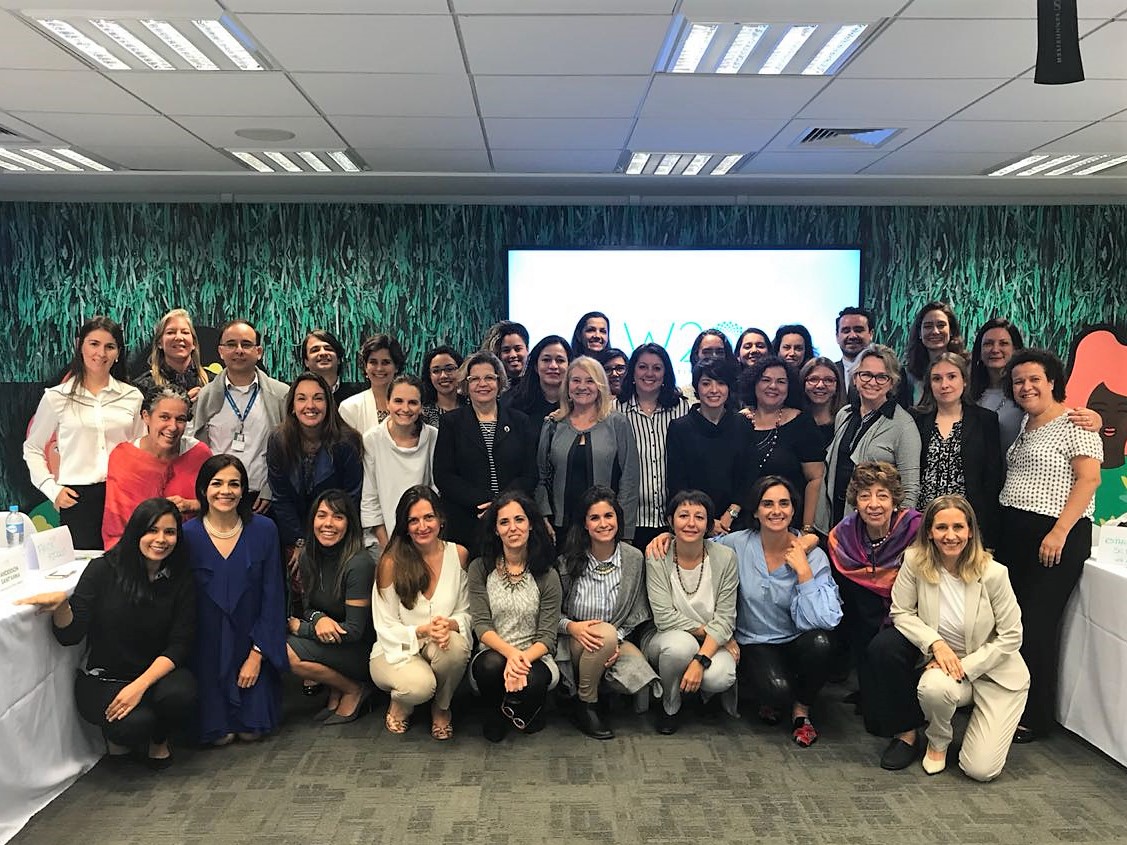The new rapprochement between both organizations came about during a W20 workshop session in Sao Paulo, Brazil. IICA is the W20 Co-chair on the issue of Rural Women.

San José, 21 June, 2018 (IICA). The Inter-American Institute for Cooperation on Agriculture participated in the Workshop Session of Women 20 (W20) – the transnational network that brings together women leaders from civil society and the private sector as well as female entrepreneurs. The occasion was an opportunity for representatives from the Institute and United Nations (UN) Women to exchange ideas for implementing actions that will positively impact the lives of rural women. IICA is the W20 Co-chair on the issue of Rural Women.
The meeting in Sao Paolo, Brazil, was an opportunity for the group to present and validate the recommendations that they will present at the W20 and G20 Heads of State and Government Summits, which are to be held in October and November, respectively.
These recommendations speak to the issues of rural development and labor, digital and financial inclusion, and are designed to influence decision-makers and the agendas of G20 leaders, to encourage them to push public policies that increase the participation of women in the economies and societies of their countries.
According to W20 data, women produce half of the world’s food, yet only 4% of them are paid for this work, making rural women more vulnerable, as it reduces their opportunities for economic development.
In addressing this problem, the leader of IICA’s Family Farming Flagship Project, Fátima Almada, offered further recommendations on the issue of rural development, emphasizing the importance of providing a social infrastructure with a gender perspective; safe access to land, resources and social and support services that will allow women to become active agents in food security policies; the creation of the 2030 Rural Women’s Fund; and finally the participation of indigenous women, female small-farmers and women of African descent in decision-making.
During the event in Sao Paulo, Almada held a meeting with UN Women’s Regional Director, Luiza Carvalho, and the organization’s Private Sector and Gender Specialist in Costa Rica, Gabriela Mata.
Almada explained that her increasing rapport with UN Women representatives during the W20 had sparked her interest to find out more about IICA’s work on the issue of rural women and to capitalize on the Institute’s presence in the region to implement a joint project in some Latin American and Caribbean countries.
She commented that “Through IICA’s participation in the W20 Workshop Session, the Institute was able to demonstrate its capacity to bring together stakeholders from countries in the American region and also its close relationship with national governments, primarily with Ministries of Agriculture”.
This is the second encounter in recent times between IICA and UN Women. IICA’s Director General, Manuel Otero, had previously met with Yannick Glemarec, UN Women’s Deputy Executive Director for Policy and Programs in New York, where they had agreed to hold more in-depth discussions on the possibility of joint actions.
The W20 recommendations will be presented to G20 leaders in the hope that they will be included in the final declaration of the summit, which will take place in Argentina.
More Information:
Fátima Almada, Leader of IICA’s Flagship Project on Productivity and Sustainability of Family Farming fatima.almada@iica.int










